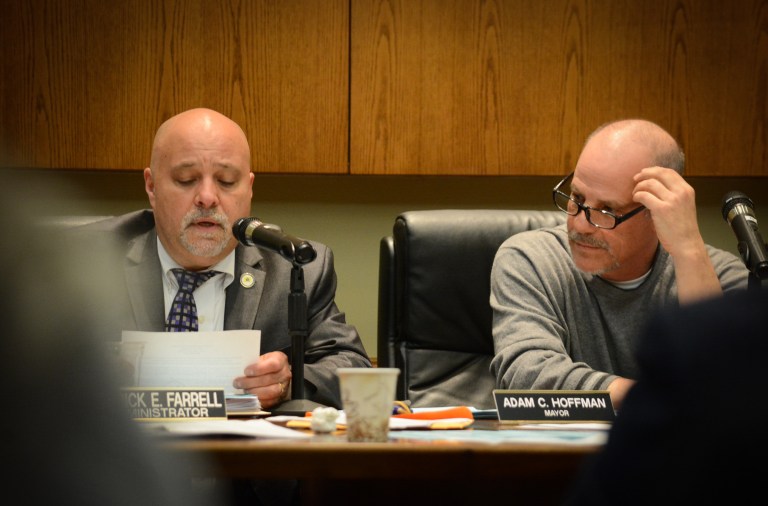
A federal judge has ordered the Village of Lake Success and ExteNet Systems Inc. to file a joint discovery plan proposal by Aug. 2 and appear for a conference on Aug. 6 in what could be a first step for a court battle or reaching a settlement over proposed cell nodes.
Magistrate Judge James Orenstein issued a scheduling order on July 18 for both parties to appear for an initial discovery planning conference at a U.S. courthouse in Brooklyn on Tuesday, Aug. 6. With that they must submit a joint proposed discovery plan in ExteNet’s lawsuit against the village.
Discovery is a pretrial procedure where both parties can exchange information relevant to legal proceedings.
“Each party’s counsel must be personally prepared to discuss all factual and legal issues in the case, including the possibility of a settlement,” the order reads, “otherwise, the client must attend in person as well.”
In May, Lake Success trustees rejected nine of 13 cell node proposals from ExteNet Systems Inc., a company that designs, builds and manages distributed networks, in a bid to boost cell phone coverage and data capacity. ExteNet sued on June 12.
The order came after Ed Ross, an attorney for Lake Success, responded on July 12 to ExteNet’s lawsuit. He said the village conducted a fair, comprehensive review of the application, made its finding available, and people have a First Amendment right to express concern about the application.
“It is further notable that ExteNet Systems Inc.’s entire complaint rests upon the fiction that the Village failed to conduct a proper review of ExteNet’s ever-shifting application for the installation of a series of wireless facility nodes which ExteNet proposed to install throughout the village,” Ross wrote.
In its suit, ExteNet called for expedited review and judgment that would pre-empt the village’s “regulatory scheme,” overturn the board’s denial of several small cell facilities, and compel the village to issue necessary consents and permits.
ExteNet argued that the village violated nondiscrimination provisions in the Telecommunications Act by “placing a substantially higher procedural and substantive burden” on the company.
Then, lawyers suggested, ExteNet extensively modified its applications only to see most nodes denied with “after the fact findings” based on items “not within the limited authority reserved to the village.”
Residents had flooded public hearings regarding the proposed cell nodes, questioning their need while raising concerns about aesthetics, placement and impacts on property values.
According to a village resolution attached in Ross’ response, the rejected nodes failed to meet village goals in minimizing negative aesthetic and visual impacts and ExteNet fell short in providing “details, data, information or criteria” on alternatives.
The lawsuit against Lake Success by ExteNet would not be the first in the area. The Village of Munsey Park in the Manhasset region was sued when it did not act on an application to construct a node last year.
The suit was dropped in December, after which the two parties began working in a “spirit of cooperation,” and a conditional use permit was granted to ExteNet to install a cell node in the village in April.
The legal action also comes as the villages of Plandome and Flower Hill weigh applications from ExteNet to install 10 and 18 cell nodes respectively.
The Village of Kings Point approved an application by ExteNet earlier this year to install 31 cellular nodes throughout the village. Paired with it was the approval of a new village telecommunications law, which aims to accommodate these small cell facilities and comply with Federal Communications Commission regulations.






